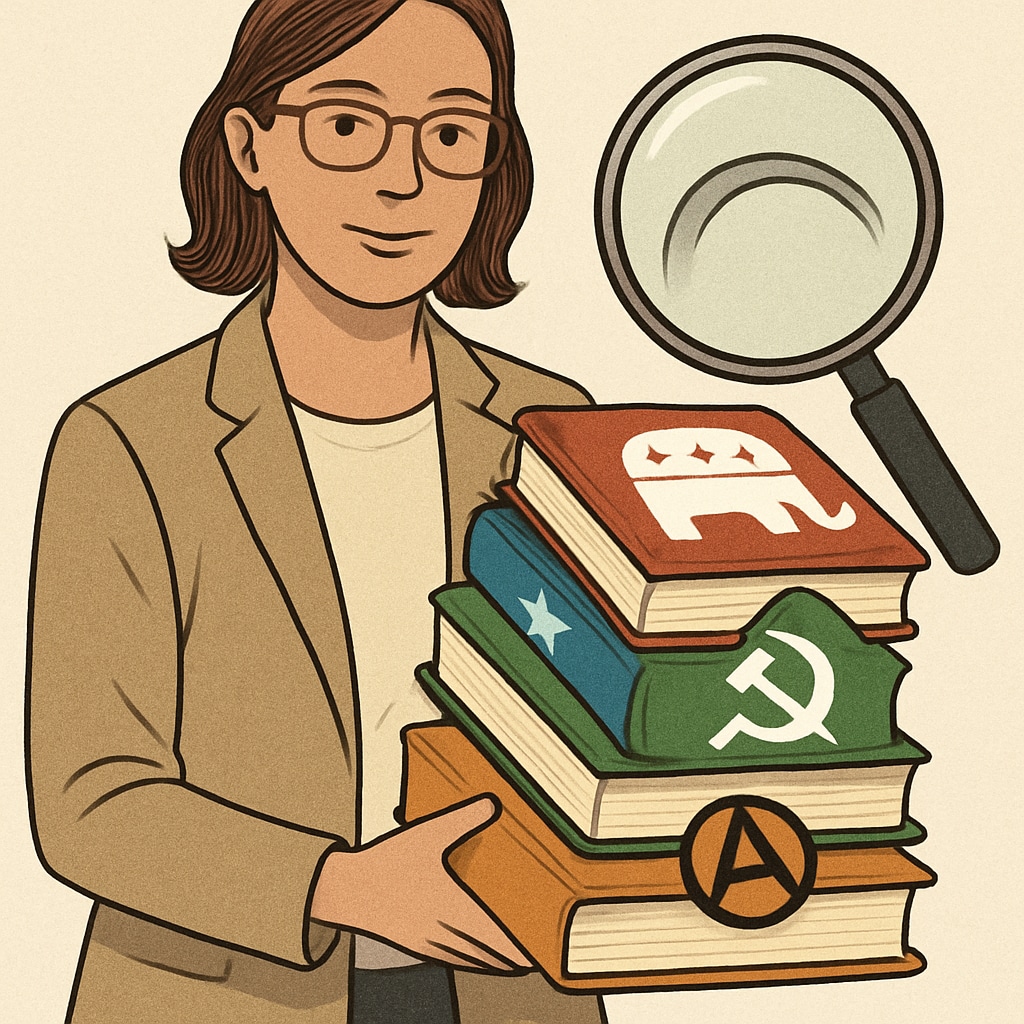The recent implementation of political ideology tests for out-of-state teacher applications in Oklahoma has ignited a nationwide debate about the intersection of education and politics. By requiring new applicants to undergo scrutiny for so-called “radical beliefs” or “activist ideologies,” the state aims to safeguard its educational framework. However, this policy raises critical concerns about teacher autonomy, diversity of thought, and the potential for political interference in classrooms. How can education remain a space for open dialogue while addressing fears of ideological bias? This article delves into the motivations, potential consequences, and broader implications of this controversial policy.

Oklahoma’s Political Ideology Test: What Does It Mean?
In an unprecedented move, Oklahoma has mandated that out-of-state teacher applicants undergo evaluations to determine their political leanings. The state justifies this policy by arguing that it aims to prevent the spread of “radical ideologies” into its public schools. These evaluations reportedly examine a candidate’s past public statements, social media activity, and any affiliations with activist organizations.
Proponents of the policy argue it is necessary to protect children from perceived indoctrination and to maintain a politically neutral education system. For example, some fear that unchecked “activist teachers” could shape curriculum content or classroom discussions in ways that reflect personal biases. However, critics respond that such tests infringe upon the principles of free speech and thought, effectively discouraging teachers with diverse perspectives from joining Oklahoma’s workforce. As a result, the debate has become a lightning rod for larger cultural conflicts within the United States.
According to Britannica, freedom of speech is a cornerstone of democratic societies. Critics of Oklahoma’s policy suggest that policing teacher beliefs may create a chilling effect, where educators self-censor to avoid scrutiny. Such an atmosphere, they argue, is harmful to the open exchange of ideas that education is supposed to cultivate.
Potential Impacts on Teacher Recruitment and Retention
One of the immediate concerns surrounding this policy is its impact on teacher recruitment. Oklahoma, like many states, is grappling with a teacher shortage. By adding political ideology tests as a requirement, the state risks further discouraging qualified educators from applying. In turn, this could exacerbate existing staffing challenges, especially in rural and underfunded schools.
Furthermore, the subjective nature of political evaluations raises questions about fairness and transparency. Who decides what constitutes a “radical ideology”? Could these screenings disproportionately target teachers with progressive viewpoints, or even those advocating for social justice reforms? Without clear guidelines, the process may be vulnerable to bias.
Additionally, retaining current teachers may become a problem if the policy expands to include in-state educators. Teachers who feel their perspectives are under constant surveillance may choose to leave the profession altogether, further destabilizing Oklahoma’s education system. According to research from the Education Week, job satisfaction among teachers is already at an all-time low. Policies that increase scrutiny and limit autonomy could worsen this trend.

Balancing Ideological Purity with Diversity of Thought
The debate over political ideology tests highlights a broader cultural struggle: how to ensure education remains unbiased while fostering an environment that celebrates diverse perspectives. Proponents of the policy argue that schools must focus on core academic subjects, free from political or activist agendas. However, critics contend that such policies are inherently political, as they seek to enforce one set of values over others.
- Support for the Tests: Advocates claim these measures are necessary to counteract what they see as an influx of activist educators. They argue that politics has no place in classrooms and that teachers should focus solely on educating students, not influencing their beliefs.
- Opposition to the Tests: Opponents argue that banning certain ideologies stifles critical thinking and open debate, both of which are essential components of education. They believe students benefit from encountering a variety of perspectives, which prepares them for the complexities of the real world.
As a result, the challenge lies in finding a middle ground. Policymakers must address concerns about ideological bias without creating an environment of fear and censorship. Transparency, clear guidelines, and robust checks and balances could help ensure that any screening process is impartial and fair.
A Way Forward: Recommendations for Policymakers
To navigate this contentious issue, Oklahoma and other states considering similar policies must adopt a balanced approach. Here are some recommendations:
- Focus on Professional Standards: Instead of examining political beliefs, teacher evaluations should prioritize adherence to professional standards and ethics.
- Promote Training on Neutrality: Offer professional development programs that help teachers navigate sensitive topics without imposing their views.
- Increase Transparency: Any screening process must be transparent and include clear definitions of terms like “radical ideology.”
- Engage Diverse Stakeholders: Include educators, parents, and community leaders in discussions about education policy to ensure diverse viewpoints are considered.
By implementing these measures, states can address concerns about political interference while fostering a more inclusive and balanced education system.
In conclusion, Oklahoma’s decision to implement political ideology tests for out-of-state teacher applicants has sparked a vital conversation about the role of politics in education. As the debate continues, it is crucial to prioritize policies that uphold both educational integrity and freedom of thought. Striking this balance will be essential for preparing students to thrive in a diverse and democratic society.


